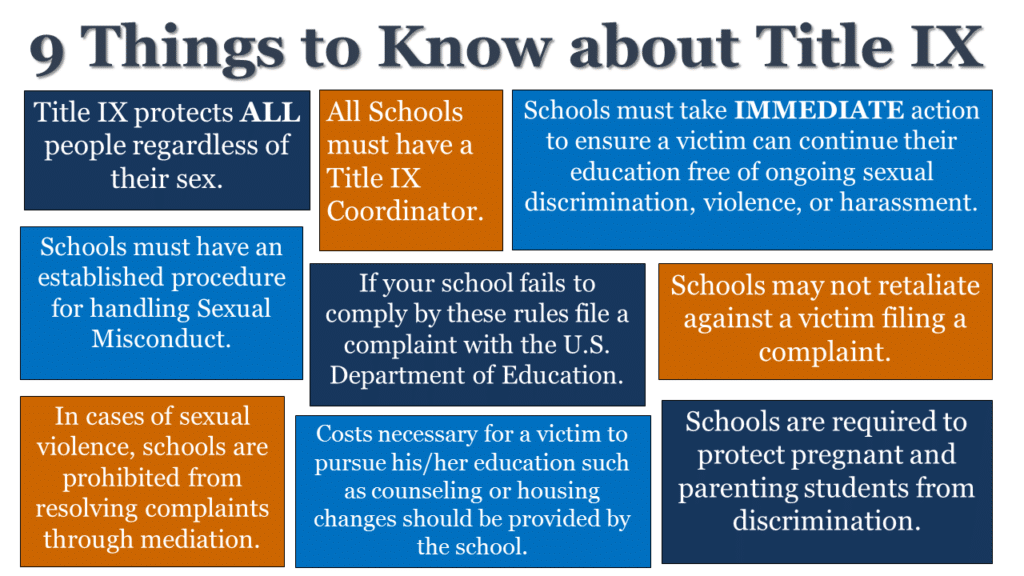Accused of a Title IX Violation? You Have a Right to an Attorney
As the Department of Education is attempting to change Title IX laws, Illinois college students are putting up a fight. Experts say that Title IX, the federal civil rights laws that prohibit discrimination based on sex, is already not sufficient.
Further weakening of the guidelines will only put victims of sexual harassment and misconduct in an even worse position.
Every university student should understand Title IX and what it means for their college experience. Learn more about Title IX and what college students across Illinois are doing to respond to proposed changes in federal law.
What Is the Purpose of Title IX?
Title IX is a federal law that states that no person in the U.S. should be discriminated against based on sex in educational activities or programs that receive federal funding.
It is enforced by the U.S. Department of Education’s Office for Civil Rights, which conducts reviews of compliance and responds to any complaints alleging discrimination based on sex.
How Are Legislators Proposing to Change Title IX Laws?
The proposed changes to Title IX are meant to redefine sexual harassment under Title IX protections.
During the Obama era, schools were given guidance that sexual harassment is something that is “unwelcome conduct of a sexual nature” and also includes any requests for physical, verbal, and nonverbal conduct of a sexual nature as well as requests for sexual favors.
The current Department of Education’s rule would seek to define sexual harassment as conduct that is pervasive and severe. It would also change so that it mandates that any Title IX investigations include live hearings with cross-examinations, something that was discouraged under the previous administration.
This rule change will also make the evidence of the proceedings open to both parties as well as eliminating restrictions on each party’s right to talk about allegations.
Further, the new rule would require Title IX coordinators to file formal complaints under any circumstance where one individual has multiple complaints against them, regardless of whether victims want formal investigations pursued.
Why Are So Many Illinois Students So Concerned?
Illinois college students are concerned about these rule changes for a few reasons, chief among them that as many colleges and universities are attempting to expand the definition of sexual harassment, this rule change is seeking to tighten it and give it a higher level of examination.
At first glance, this might seem as if it’s a good thing, but in all, it makes it more difficult for victims to seek justice. It also lends to privacy issues for the accused.
Students have urged that, no matter how federal guidelines change, Illinois should stick to its state guidelines.
What Does All of This Mean for You If You Are Charged?
One thing made abundantly clear by this proposed rule change is that those charged with Title IX violations have a complex situation to navigate.
Schools can take disciplinary action against someone before any legal proceedings take place and the accused can be expelled or suspended regardless of the result of civil or criminal proceedings.
Those accused of misconduct under Title IX rules and guidelines have rights that should be supported and defended, which makes having a competent Title IX attorney even more important.

Ultimately, each school’s disciplinary processes can differ greatly from each other and the criminal justice system, so having someone with your best interests in mind can help to see you through the process.
The new rules are still being debated, but many schools are holding fast to their constant policies and students are making their voices heard.
About the Author:
Andrew M. Weisberg is a former felony prosecutor who now serves as a defense attorney in the greater Chicago area. He has extensive experience in handling all types of criminal cases, from sex offenses and domestic violence to retail theft-related crimes, murder, and drug crimes.







 Blog Home
Blog Home 










